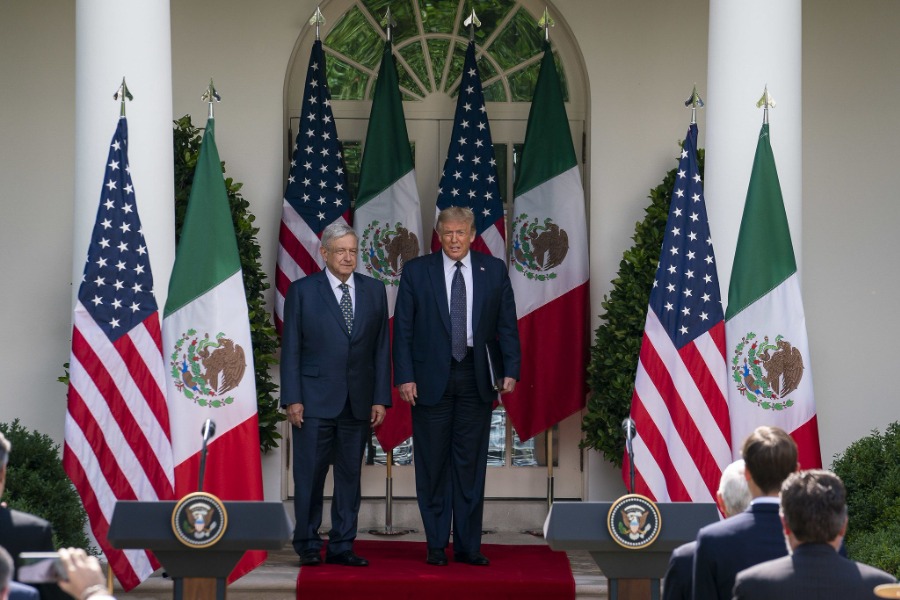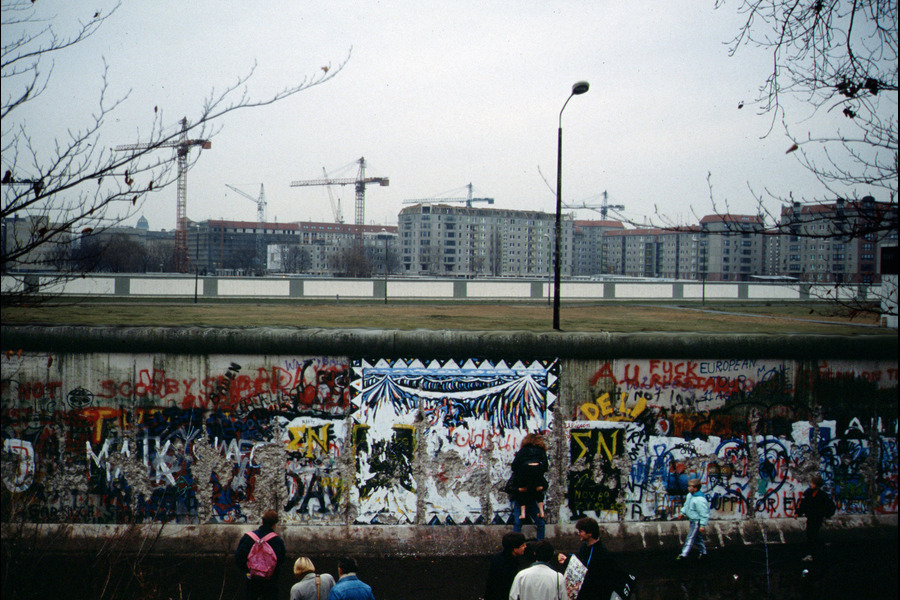Amicus Brief Challenging the ICTY's Ruling on Distinction in Gotovina
[The following guest post, from Geoff Corn (South Texas College of Law), extends the discussion of the Gotovina decision from Laurie Blanks's guest post yesterday]
On April 15, 2011, the International Criminal Tribunal for the Former Yugoslavia issued its judgment in the case of Prosecutor v. Gotovina, et.
Published by The Lawfare Institute
in Cooperation With

[The following guest post, from Geoff Corn (South Texas College of Law), extends the discussion of the Gotovina decision from Laurie Blanks's guest post yesterday]
On April 15, 2011, the International Criminal Tribunal for the Former Yugoslavia issued its judgment in the case of Prosecutor v. Gotovina, et. al. Colonel General Ante Gotovina and two co-defendants were Generals in the Croatian Armed Forces (HV) tasked with launching the 1995 offensive to reestablish Croatian authority over the Croatian Serb breakaway region of the Krajina. Known as Operation Storm, the campaign involved a complex movement to contact by HV forces to defeat in depth Croat Serb forces (the SVK), capture the Krajina capital of Knin, and relieve pressure on neighboring Bosnian government forces fighting the Bosnian Serb dissident forces under the command of Ratko Mladic. Ante Gotovina was an expatriate Croat and former non-commissioned officer in the French Foreign Legion. He returned to Croatia when the civil war began to join in the struggle against Serbian efforts to retain authority over the republic. Rising quickly through the ranks of the HV, he soon emerged as an exceptional operational leader. When the Croatian government decided to launch an offensive to reestablish its control over the breakaway Serb enclave in 1995, Gotovina was selected to lead the effort. Operation Storm was remarkably successful. According to one source: At dawn on 4 August 1995, the attack began with 150,000 Croatian Army troops amassed along 630 kilometres of front lines. Their forces soon broke through the lines of the Krajina Serb army and began a rapid advance toward the capital of Knin. By the second day of the operation, the Serb forces collapsed and the bulk of the [SVK] army retreated. The Croatian forces swiftly captured the entire region in four days, effectively ending the operation on 8 August. The operation, which lasted 84 hours, was documented as the largest European land offensive since World War II. The operation also, however, resulted in the displacement of a large number of ethnic Serbs living in the Krajina. This ultimately led to an ICTY indictment alleging that Gotovina and his co-defendants committed crimes against humanity and ethnically cleansed the region. Central to the Office of the Prosecutor’s (OTP) theory was an allegation that Gotovina ordered an unlawful artillery attack against the City of Knin on 4-5 August, the two days of the HV main offensive that led to the capture of the city. At his trial, the OTP presented the opinion of Lieutenant Colonel Koenig, a career Dutch Artillery officer. Koenigs opined that the totality of the evidence, including operational orders, firing logs, enemy dispositions in Knin, and the pattern of artillery effects, indicated that Gotovina had ordered an indiscriminate use of HV artillery and that he had essentially treated the entire city as a general target. In response, the defense offered a report that I prepared on their behalf, and my testimony. In that report, I opined that there were a number of lawful military objectives located within Knin, that the totality of the evidence did not support a conclusion of unlawful attack, and that based on the assumptions provided to me by the defense (which were based on their understanding of the record facts), Gotovina’s employment of cannon and rocket artillery assets was both remarkably effective and compliant with the law of armed conflict. The Trial Chamber ultimately found Gotovina guilty of the alleged offenses and sentenced him to 24 years confinement. On the issue of unlawful artillery attacks against Knin, the Trial Chamber adopted almost all of the opinion I had provided, finding that virtually every target placed under attack qualified as a lawful military objective under the circumstances, and that the use of cannon and rocket artillery against those targets was not, as the OTP had argued, per se unlawful. However, the Trial Chamber then concluded that the totality of the evidence proved that Gotovina had engaged in an unlawful attack by placing “civilian areas” under attack. A review of the Trial Chamber judgment indicates that this finding was based on three primary sources of evidence. First, Gotovina’s operations order, which directed his forces to “place Drvar, Knin, Benkovac, Obrovac, and Gracac under artillery strikes”; second, evidence that approximately 4% of artillery impact effects occurred at a distance beyond 200 meters from any one of the lawful military objectives the Trial Chamber found were placed under attack; and third, the conclusion that the use of 130mm artillery to attack the apartment in which the President and Supreme Military Leader of the Krajina (Milan Martic) resided violated the rule of proportionality because Gotovina knew that the attack created a risk to civilians in the area (even though there was no evidence that these attacks produced civilian casualties). When I read the judgment, and more particularly the analysis supporting the finding of unlawful artillery attack, I was stunned. As I noted above, I was an expert called by the defense, so I obviously did not feel that Gotovina’s use of artillery against targets in Knin was unlawful. The Trial Chamber seemed to adopt almost all of my conclusions, and then, based on the imposition of a 200 meter range of error unsupported by any evidence in the record, the Trial Chamber was able to confirm that the evidence conclusively established at least 96% of the projectiles were fired at legitimate military objectives, with the remaining 4% fired at unknown locations. What stunned me, however, was that based primarily on this 4% ‘error’ rate, the Trial Chamber concluded the attack was unlawful. I found the proportionality analysis equally remarkable. Without ever analyzing the value of disrupting Martic’s ability to participate in the command and control of enemy forces during the decisive phase of a deliberate attack against improved enemy defensive positions, and with no evidence of civilian casualties produced by the attack, the Trial Chamber condemned the attack as disproportionate. Was I too biased to react objectively? To test my reaction, I began asking former JAG colleagues – all of whom I count among the best operational law experts I know - to read the artillery portion of the judgment and share their reactions with me. The reactions were uniformly consistent with mine. Like me, they were all perplexed with the outcome, and all shared my concern about the precedential impact of this deeply flawed analysis. Motivated by this concern, a number of these experts joined together to draft an Amicus Brief--Application and Proposed Amicus Curiae Brief Concerning the 15 April 2011 Trial Chamber Judgment and Requesting That the Appeals Chamber Reconsider the Findings of Unlawful Artillery Attacks during Operation Storm (English, 46 Pages)--submitted last week to the ICTY Appeals Chamber that will hear the Gotovina appeal. The Appeals Chamber has yet to admit the Brief, and the Office of the Prosecutor recently submitted a Brief in Opposition to admission (Prosecution Response to "Application and proposed amicus curiae brief" filed on 13 January 2012 (English, 29 Pages)). They object to admission on a number of grounds, placing significant emphasis on my involvement in the Brief (the Amici ultimately decided that the interests of transparency dictated that my involvement in the Amicus Brief be open. Personally, I find it almost amusing that the OTP would suggest that I am able to manipulate such a distinguished group of experts to simply adopt my views, an aspect of their opposition brief I find least credible). The defense response brief is here: Ante Gotovina's Response to "Application and proposed Amicus Curiae Brief" filed on 13 January 2012 [PUBLIC REDACTED VERSION] (English, 8 Pages). We believe this is one of the most important appeals the ICTY will decide, and well worth watching.
Robert (Bobby) Chesney is the Dean of the University of Texas School of Law, where he also holds the James A. Baker III Chair in the Rule of Law and World Affairs at UT. He is known internationally for his scholarship relating both to cybersecurity and national security. He is a co-founder of Lawfare, the nation’s leading online source for analysis of national security legal issues, and he co-hosts the popular show The National Security Law Podcast.





